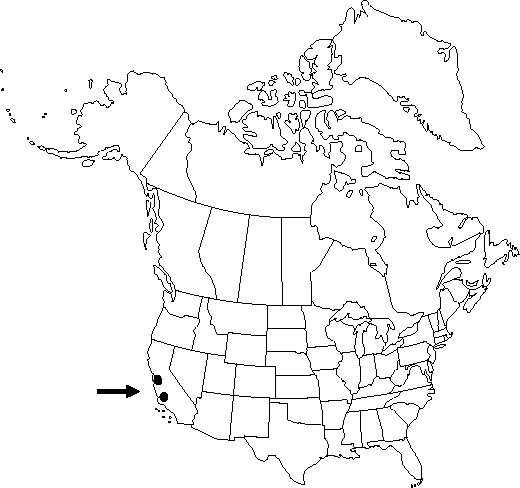Eschscholzia rhombipetala
Bull. Calif. Acad. Sci. 1: 71. 1885.
Conservation concernEndemic
Treatment appears in FNA Volume 3.
Plants annual, caulescent, erect, 5-30 cm, glabrous. Leaves basal and cauline; blade glabrous; ultimate lobes generally obtuse. Inflorescences cymose or 1-flowered; buds erect or nodding. Flowers: receptacle turbinate to obconic, distally translucent and somewhat swollen, more than 2 mm broad, cup without spreading free rim; calyx acute or acuminate, glabrous, sometimes glaucous; petals yellow, 3-15 mm. Capsules 4-7 cm. Seeds black, spheric, 1.3-1.8 mm, reticulate.
Phenology: Flowering spring (Mar–May).
Habitat: Fallow fields, open places
Elevation: 0-500 m
Discussion
Of conservation concern.
Originally known from seven sites in California, Eschscholzia rhombipetala had not been seen since the early 1970s before it was rediscovered in 1993 on the Carrizo Plain in San Luis Obispo County.
Selected References
None.
Lower Taxa
None.
